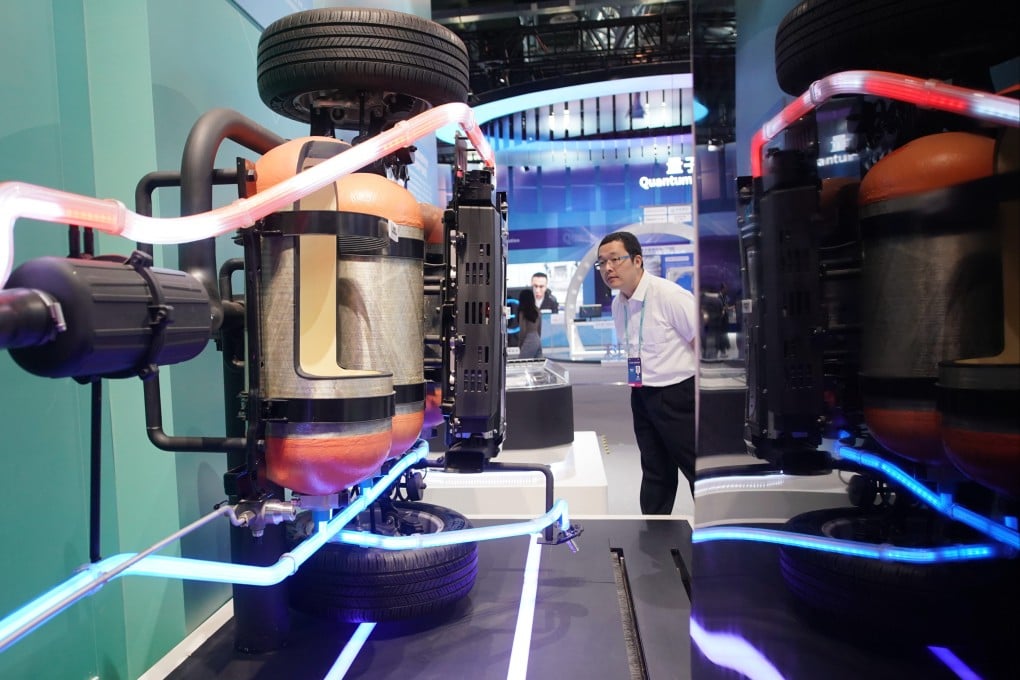Explainer | How do hydrogen vehicles work? Are they the future of transport?
- Long-range vehicles that emit only water are enticing, but high costs and fast evolution among battery-powered EVs could limit prospects

At the International Hydrogen Fuel Cell Vehicle Congress and Exhibition in Shanghai last week, more than 300 companies from countries including China, Japan, Korea and Canada came to showcase their latest technology and products.
Vehicles powered by hydrogen fuel cells, which emit only water, have attracted increasing attention from policymakers and companies seeking to decarbonise to limit global warming to less than 1.5 degrees Celsius above pre-industrial levels.
Some carmakers consider hydrogen vehicles the future of net-zero transport, but few consumers have heard of the technology, let alone seen such vehicles on the streets.
Here is what you need to know about hydrogen vehicles and their prospects for widespread adoption.
How do hydrogen vehicles work?
Hydrogen can be burned directly as a fuel, as it is highly reactive and combustible. But that is not how it works in hydrogen-powered vehicles.
